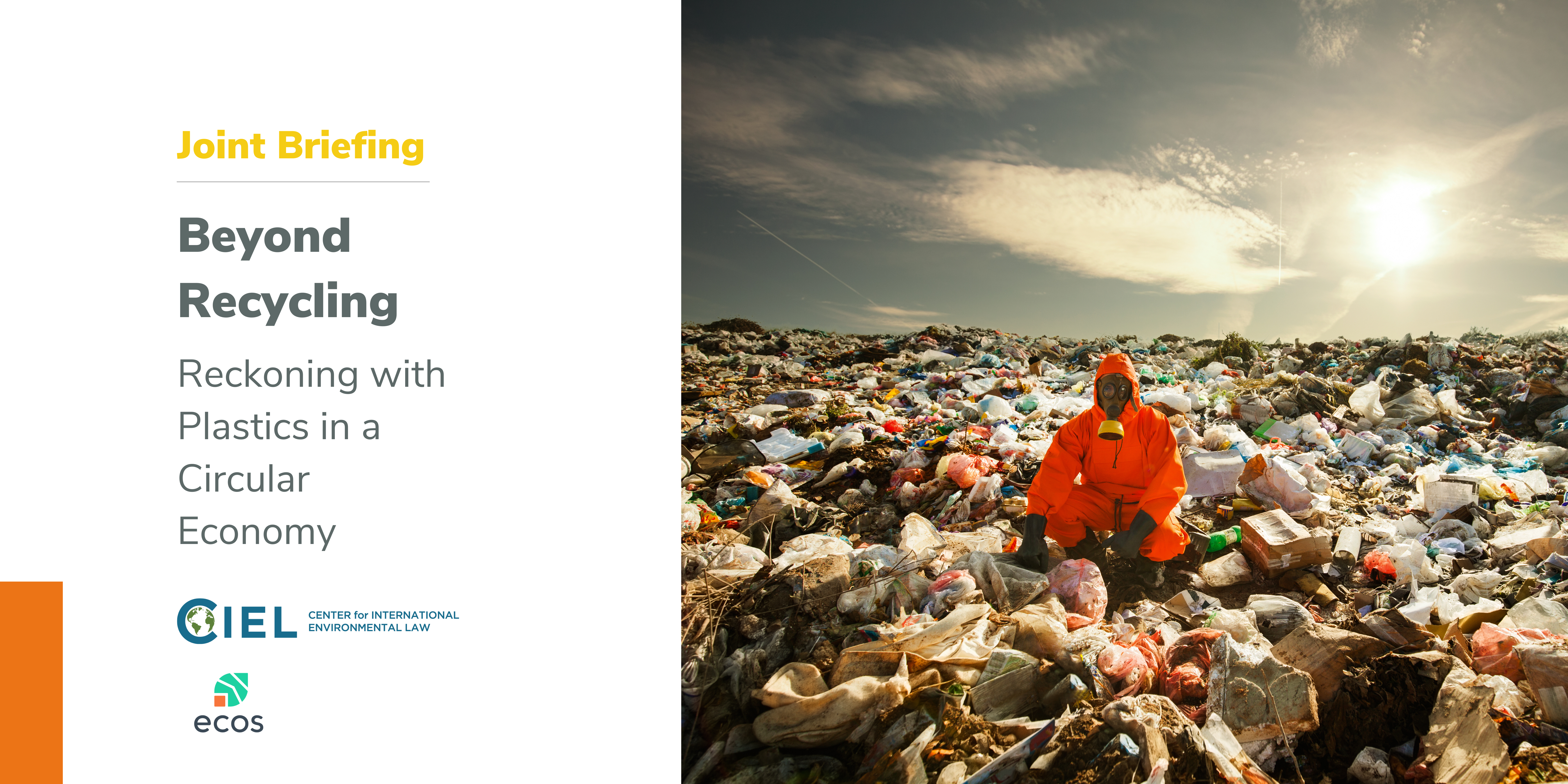Joint Briefing – Beyond Recycling: Reckoning with Plastics in a Circular Economy
ECOS and CIEL have published a brief that explains policies and technical processes that require the continuation and expansion of plastics production - cannot be labeled circular, and should not be considered solutions to the global plastics crisis.

The original conception of circularity focused on two key pillars: protecting natural resources and eliminating externalised production costs. The concept has reflected the critical need for the human economy to function within the planet’s boundaries and without harm. Yet the term ‘circular economy’ has strayed quite far from these original pillars, seriously undermining the concept’s validity in national and global policy discussions.
As decision-makers consider policies and practices to bring about a circular economy, they must consider the following principles:
- Toxics poison the circle. Toxic additives and hazardous chemicals are used throughout feedstock extraction and plastics production, manufacture, use, and disposal, representing a major obstacle to any kind of ‘circularity’ for plastics.
- Burning is not circular. The ‘circular’ label is often misapplied to the burning and inadequate recycling of plastic waste, contrary to the principles of circularity.
- Safe design can be circular. Policies to advance a circular economy must focus first on a non-toxic redesign for reuse, rather than normalising the production of toxic materials and waste.
- Upholding human rights is circular. The implementation of circularity for all materials in the economy — especially plastics — must ensure that human rights are upheld for all people, with specific care for those made most vulnerable to harm.
As this brief explains, policies or technical processes that require the continuation and expansion of plastics production cannot be labeled circular, and they should thus not be considered solutions to the global plastics crisis. Any steps taken toward applying the label of ‘circularity’ to plastics must address the serious toxics and human rights concerns associated with not only the disposal of plastics but also their use and production. For this reason, this brief clarifies that there is no place for the current production and use of plastics in a circular economy.
Find the full briefing HERE.
Download the document

